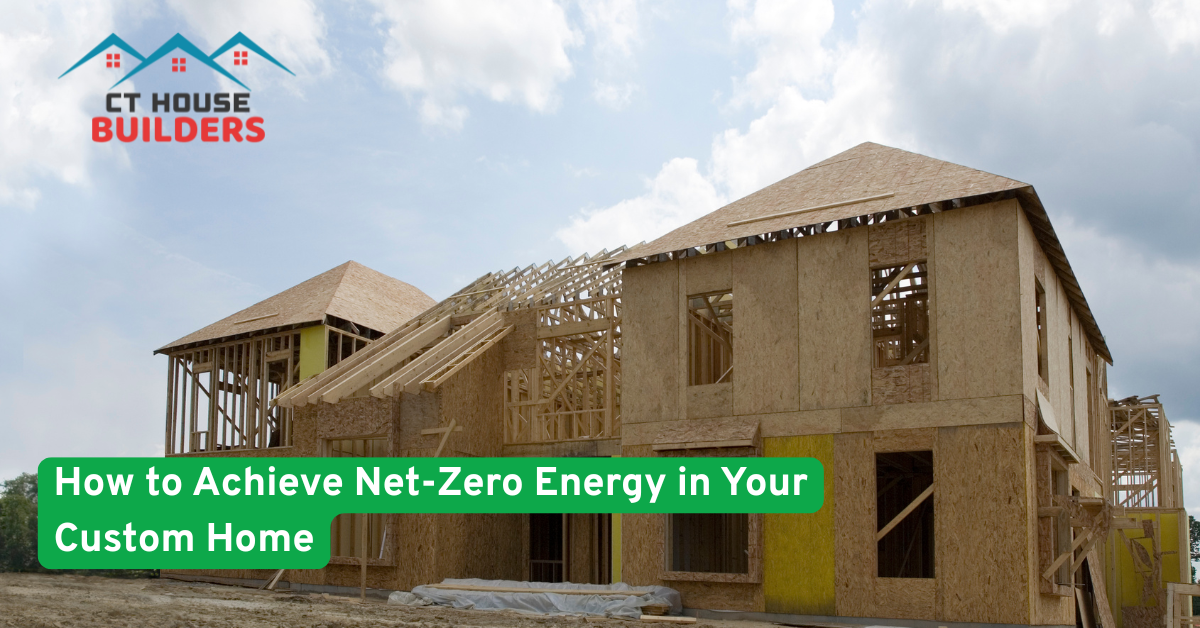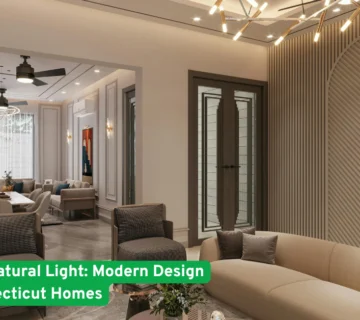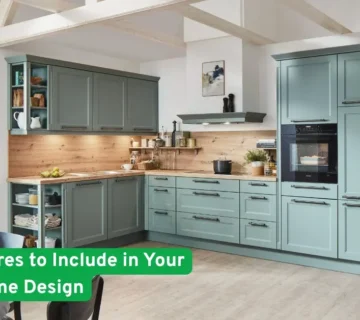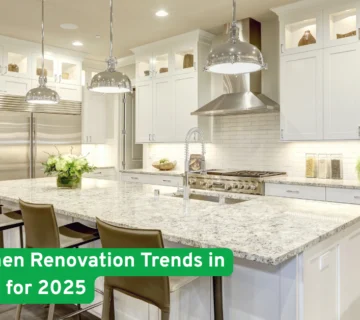Imagine living in a home that not only offers comfort and luxury but also contributes to a cleaner environment while lowering your utility bills. How to achieve net-zero energy in your custom home is the question many eco-conscious homeowners are asking today. A net-zero energy home is one that generates as much energy as it consumes annually, primarily using renewable energy sources like solar, wind, and geothermal.By producing as much energy as they consume, these homes reduce or even eliminate the need for energy purchases from utility companies, resulting in lower overall energy costs. . Let us discover the process needed to guide you through net-zero energy in your custom home.
Why Going Net-Zero Energy is a Wise Investment
Net-zero energy home construction is no longer a green option, it is also a budget-friendly one. With rising energy prices and rising concern over climate change, homeowners are seeking means to reduce their presence on the environment and their costs in energy bills. A net-zero home does both. Using renewable energy systems and energy-efficient design, you will reduce huge quantities of carbon emissions and save yourself money on conventional energy sources. In regards to the U.S. Department of Energy, net-zero homes are becoming increasingly popular and are now more affordable than ever.
Steps to Getting to Net-Zero Energy in Your Personalized Home
Design and Insulation for Efficiency
The first thing in reaching net-zero energy is having your home energy efficient from the very beginning. Proper insulation is the main thing in minimizing the energy required for heating or cooling your home. High-performance doors and windows, and high-end insulation products like spray foam or rigid foam boards, reduce heat loss. Installing high-performance doors and windows also prevent the loss of heat in winter or gain in summer by a significant amount. With professionals familiar with energy-efficient design, your house is constructed to achieve its highest possible energy performance.
Install High-Efficiency HVAC Systems
The majority of energy usage in average residences is provided by heating and cooling. Efficient HVAC systems need to be used to achieve low energy usage without being uncomfortable. High SEER rated systems, which are a measure of energy efficiency, should be sought out. Other than selecting the right system, zoning your home enables you to cool and heat only the areas of residence, thus eliminating extra energy consumption.
Leverage the Potential of Solar Power
Solar power is one of the best methods to meet net-zero energy in your personally designed home. You can produce your own power through the installation of solar panels, which makes you less reliant on the grid. Solar panels convert sunlight into electricity, and it can be used to power electrical systems at home. Excess energy can actually be fed back into the grid, and you may also be eligible for payment or credits through net metering. Solar power is among the building blocks of net-zero energy and is highly advisable for green building in the home.
Energy-Efficient Appliances and Lighting
Another action of utmost significance is to replace appliances with energy-efficient ones. Appliances bearing the Energy STAR logo use far less energy than their conventional counterparts. Moreover, a transition towards LED bulbs or smart bulbs that switch off by themselves when not in use is a simple but effective measure in reducing energy usage. All appliances and lights in your household must be contributory to the net-zero energy.
Integrate a Smart Home Technology
Home automation systems are becoming imperative for homeowners who want to maximize their energy consumption. Thermostats, lights, and even appliances can be operated remotely such that only energy is consumed when needed. Home automation technologies enable you to see your consumption of energy in real time and adjust to prevent wastage. Home automation is at the core of becoming net-zero energy because it enables you to monitor and optimize how your home consumes energy.
Geothermal Heating and Cooling Systems
Geothermal power is a clean and renewable source of energy that can be used to heat and cool your home. Geothermal heating and cooling systems take advantage of the earth’s natural heat for regulating the temperature of your home. The technology used is highly efficient and is capable of reducing your reliance on traditional heating and cooling devices. Installation of a geothermal system is an excellent method of having your home become net-zero energy while maintaining a pleasant indoor temperature all year round.
Why Choose Us for Custom Home
At CT House Builders, we have specialized in constructing custom homes that are as stunning as they are energy and eco-efficient. Our experts are dedicated to assisting you in designing and constructing a net-zero energy home that is within your environmental vision and budget. From solar panel installation to energy-efficient design and smart home integration, our integrated services are aligned with your vision for sustainability. With quality craftsmanship and energy-saving technologies in mind, CT House Builders is your go-to professional for designing a custom home that adds up to long-term value.
Frequently Asked Questions (FAQs)
Q.1 What is a net-zero energy home?
A net-zero home is one that consumes as much energy as it generates in a year, usually by applying renewable energy such as the sun or geothermal heat, supplemented by efficiency and design.
Q2: How much does it cost to build a net-zero home?
The cost of building a net-zero energy house varies with size, location, and systems utilized but is paid back in 5-10 years through incentives and long-term cost savings.
Q3: Do I need solar panels to be net-zero energy?
While solar panels are an easy and effective option, net-zero energy can also be obtained through sources like wind or geothermal and very efficient appliances and systems.
Q4: How long will it take for a net-zero energy house to recoup the investment expense?
On average, it takes between 5-10 years to recoup the investment, depending on the energy savings and available tax incentives. Over time, however, you’ll continue to benefit from reduced energy costs.
Q5: Are there incentives for building a net-zero energy home?
Yes, many states and the federal government offer tax credits and incentives for installing renewable energy systems, such as solar panels, and for building energy-efficient homes.
Conclusion
Designing your own home net-zero energy is a good way of reducing your carbon footprint and saving energy cost. By the intervention of professionals who can undertake specialized skills in energy-efficient design, solar power, smart technology, and geothermal systems, you can have a home that is warm, lovely, but stingy and sustainable. CT House Builders is happy to help you construct your house not only as a shelter and haven but also as an eco-friendly option for the future.
Is the time finally right to take the leap toward a greener tomorrow? Call CT House Builders today and start building toward making your dream net-zero energy custom home a reality!







